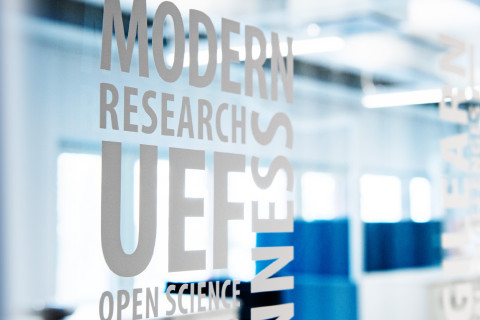The doctoral dissertation in the field of Dentistry will be examined at the Faculty of Health Sciences at Kuopio campus. The public examination will be streamed online.
What is the topic of your doctoral research? Why is it important to study the topic?
The topic of my thesis is ¨Transmembrane MUC1 in the oral mucosal epithelium – The effect of radiation and smoking¨. MUC1 is a glycoprotein that forms an important part of the oral mucosal barrier complex and plays a very important role in the protection of oral mucosal epithelium from external stimuli. In addition, MUC1 has a role in enhancing carcinogenesis. But there are very limited studies about MUC1 in oral mucosal epithelium. My doctoral research focuses on identifying the MUC1 expression in the oral mucosal epithelium and the changes that occur with the effect of radiation and smoking. The changed expression of MUC1 in oral mucosa provides a basis to understand the pathobiology of radiation-induced oral lesions that occur years after radiotherapy.
What are the key findings or observations of your doctoral research?
The key findings of the research are that the transmembrane MUC1 expression in oral epithelium changes with radiation and persistent smoking habit. The changed expression of hyaluronan and MUC1 in oral mucosal epithelium has shown their different role played in maintaining oral epithelial homeostasis. The MUC1 expression identified in the present study was found to be associated with the change in the oral mucosal architecture and these could be used as biomarkers for analysing the post-radiation-induced oral mucosal alterations. Our research forms the initial point for future research to understand the role of MUC1 in oral epithelium.
How can the results of your doctoral research be utilised in practice?
The MUC1, as a prognostic biomarker, is well-established in many cancers but its role in oral mucosal epithelium after radiotherapy is very limited. It can be used as a diagnostic biomarker in irradiated oral epithelium to identify the change in the oral mucosal barrier complex. Also, MUC1 provides a protective barrier against pathogens and understanding its underlying mechanism in irradiated oral epithelium could provide possibility in topical drug designing to cure radiation-induced oral lesions.
What are the key research methods and materials used in your doctoral research?
This doctoral thesis was performed mainly in the research group of Professor Arja M. Kullaa at the Institute of Dentistry, University of Eastern Finland. The methodology was based on the immunohistochemical method for qualitative and semi-quantitative studies and scanning and transmission electron microscopic studies. Our research group is the first to use human milk fat globulin1 (HMFG1) antibody to identify the MUC1 expression in oral mucosal epithelium. Materials for the present thesis were acquired in collaboration with the Amsterdam UMC and Academic Centre for Dentistry (ACTA), VU Medical Center, Department of Oral and Maxillofacial Surgery/Oral Pathology, Amsterdam, The Netherlands.
The doctoral dissertation of Bina Kashyap, MDS, entitled Transmembrane MUC1 in the oral mucosal epithelium - The effect of irradiation and smoking will be examined at the Faculty of Health Sciences at Kuopio campus. The Opponent in the public examination will be Professor Jaana Hagström of the University of Turku, and the Custos will be Professor Emerita Arja Kullaa of the University of Eastern Finland.
For further information, please contact:
MDS, Bina Kashyap, bkashyap(a)uef.fi


